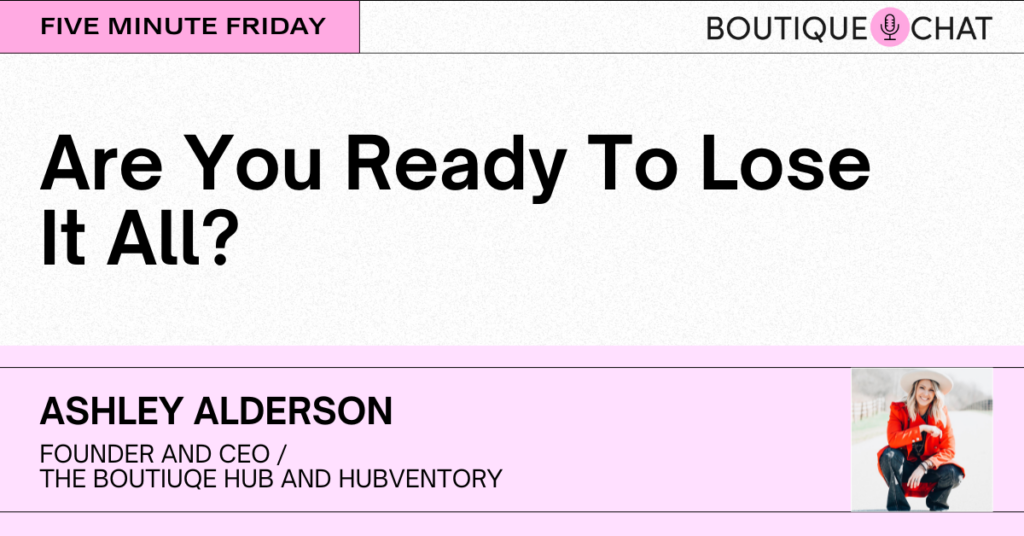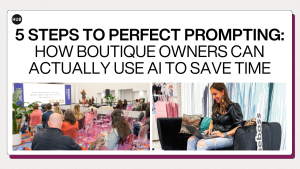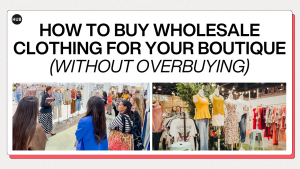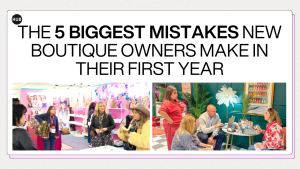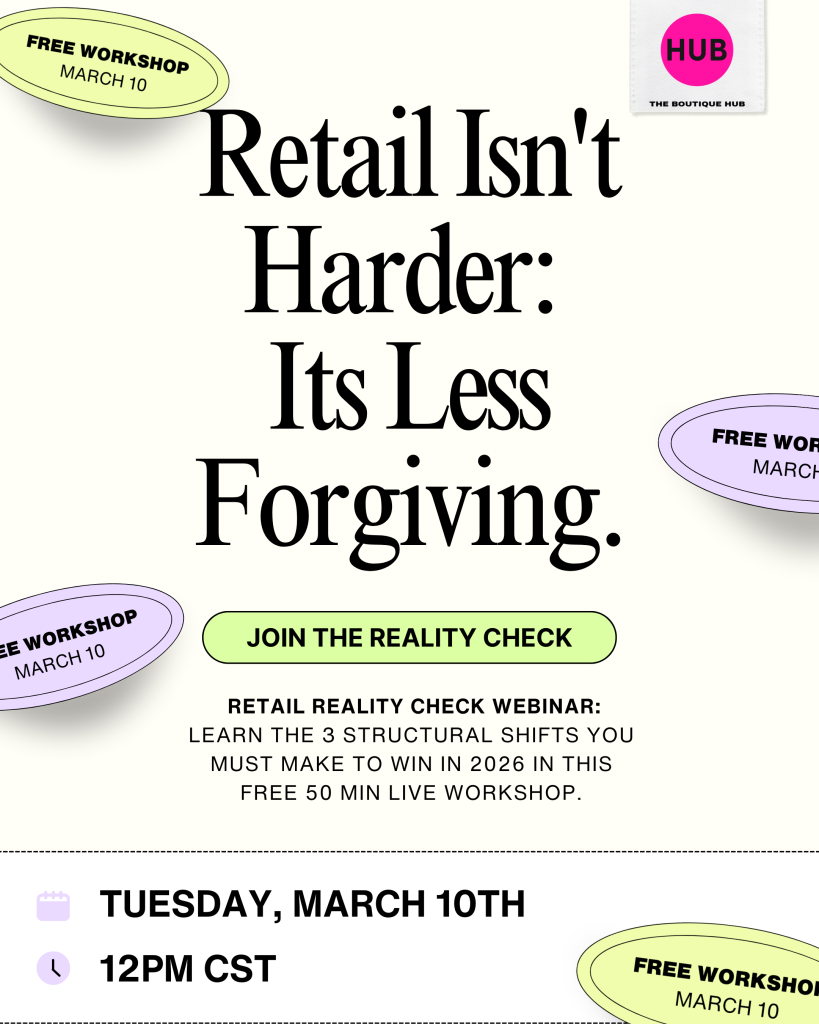APPLE PODCAST | SPOTIFY | YOUTUBE
Are you ready to risk losing everything you’ve built? That might sound dramatic, but it’s a very real threat if you’re unknowingly selling trademarked, copyrighted, or unlicensed goods. In this Five Minute Friday, I want to shed light on a pervasive issue in our industry that could jeopardize your entire business.
Whether you realize it or not, selling infringing goods can lead to severe consequences. I see it all the time—businesses carrying knockoff Louis Vuitton bags, unauthorized Disney merchandise, or t-shirts with popular band logos. Let’s take a moment to evaluate the inventory you’re carrying and ensure it’s legal for you to sell.
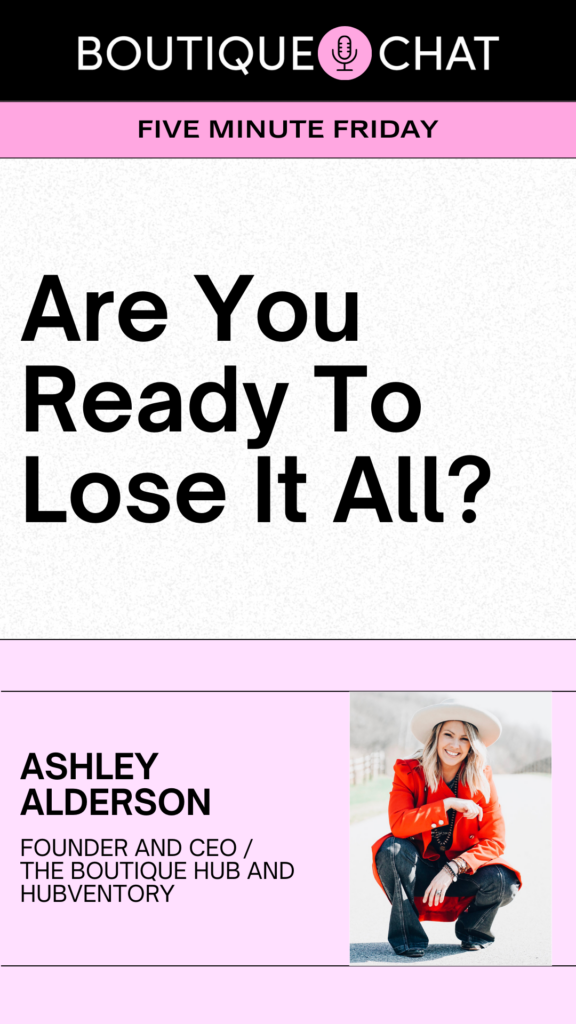
Are You Ready to Lose It All?
Understanding the Risks
Imagine someone took a picture of your face, put it on a t-shirt, and sold millions of dollars worth of those t-shirts without giving you a dime. How would you feel? Upset, right? Unfortunately, this scenario plays out daily in business. Entrepreneurs sell products featuring copyrighted characters or famous brand logos without authorization, risking legal action and financial ruin.
Key Areas of Concern
- Trademark Infringement: Are you selling products that feature registered trademarks? Trademarks include business logos, taglines, or any unique identifier of a brand. For instance, my business’s tagline, #BoutiqueBoss, is trademarked. If someone else tries to sell t-shirts with this phrase, they are infringing on my trademark. To check if something is trademarked, you can search the United States Patent and Trademark Office (USPTO) database at USPTO.gov.
- Licensing Agreements: If you want to sell goods with logos or characters from famous brands (like NFL teams or Disney characters), you need to ensure these items are officially licensed. Licensed goods often come with a licensing number or a hologram sticker indicating authenticity. When purchasing from wholesale vendors, always ask for proof of their licensing agreement. Don’t just take their word for it.
- Knockoff and Dupe Products: Selling “dupe” products—items designed to mimic famous brands like Chanel bags or Hunter boots—can be tempting due to their popularity. However, these are typically illegal and can get you into serious trouble. Anything advertised as a “dupe” is a major red flag and should be avoided.
The Consequences
Failing to adhere to these guidelines can result in dire consequences for your business. There are automated systems and bots that scour social media and websites for infringing goods. This can lead to your Facebook page, group, ad account, or even your entire Shopify site being shut down swiftly. I’ve seen this happen to numerous businesses, resulting in significant losses.
Protect Your Business
To avoid these pitfalls, always verify the legitimacy of the products you sell. Don’t trust sellers who claim an item is “safe” or “legal” without proper evidence. Changing a design “20%” doesn’t make it legal. Protect your business, your assets, and the hard work you’ve invested by steering clear of infringing goods.
By being vigilant and informed, you can ensure that your business thrives without the looming threat of legal issues. Remember, it’s not worth the risk. Stick to selling amazing, legitimate products and build your success on a solid, legal foundation.
Let’s Connect #AskAshley
- Have a question or guest recommendation? Let us know your feedback directly here!
- Do you love the Boutique Chat Podcast?! Subscribe to our podcast and after that, leave us a review on iTunes Apple Podcasts here!
Must Have Resources
- The Boutique Hub: Website | Facebook | Instagram | Pinterest | TikTok | YouTube
- Boutique Summit 2024
- Small Business Marketing Handbook
- Small Business Hiring Handbook
- Brand Owner Basics Masterclass
- Tradeshow Marketing Handbook
- 2024 Trade Show Calendar
- Boutique Hub Black
- Hubventory.com
Recent Posts:
- 5 Steps to Perfect Prompting: How Boutique Owners Can Actually Use AI to Save Time
 Tried AI but didn’t get great results? Here’s how to use ChatGPT for retail marketing the right way — with smarter prompts that save time and increase sales.
Tried AI but didn’t get great results? Here’s how to use ChatGPT for retail marketing the right way — with smarter prompts that save time and increase sales. - How to Buy Wholesale Clothing for Your Boutique (Without Overbuying)
 Learn how to buy wholesale clothing for your boutique without overbuying. Use smart inventory planning, budget strategy, and reorder systems to protect profit.
Learn how to buy wholesale clothing for your boutique without overbuying. Use smart inventory planning, budget strategy, and reorder systems to protect profit. - The 5 Biggest Mistakes New Boutique Owners Make in Their First Year
 The first year of owning a boutique can make or break your business. Learn the five biggest mistakes new boutique owners make — and how to avoid costly inventory, margin, and branding missteps.
The first year of owning a boutique can make or break your business. Learn the five biggest mistakes new boutique owners make — and how to avoid costly inventory, margin, and branding missteps.
